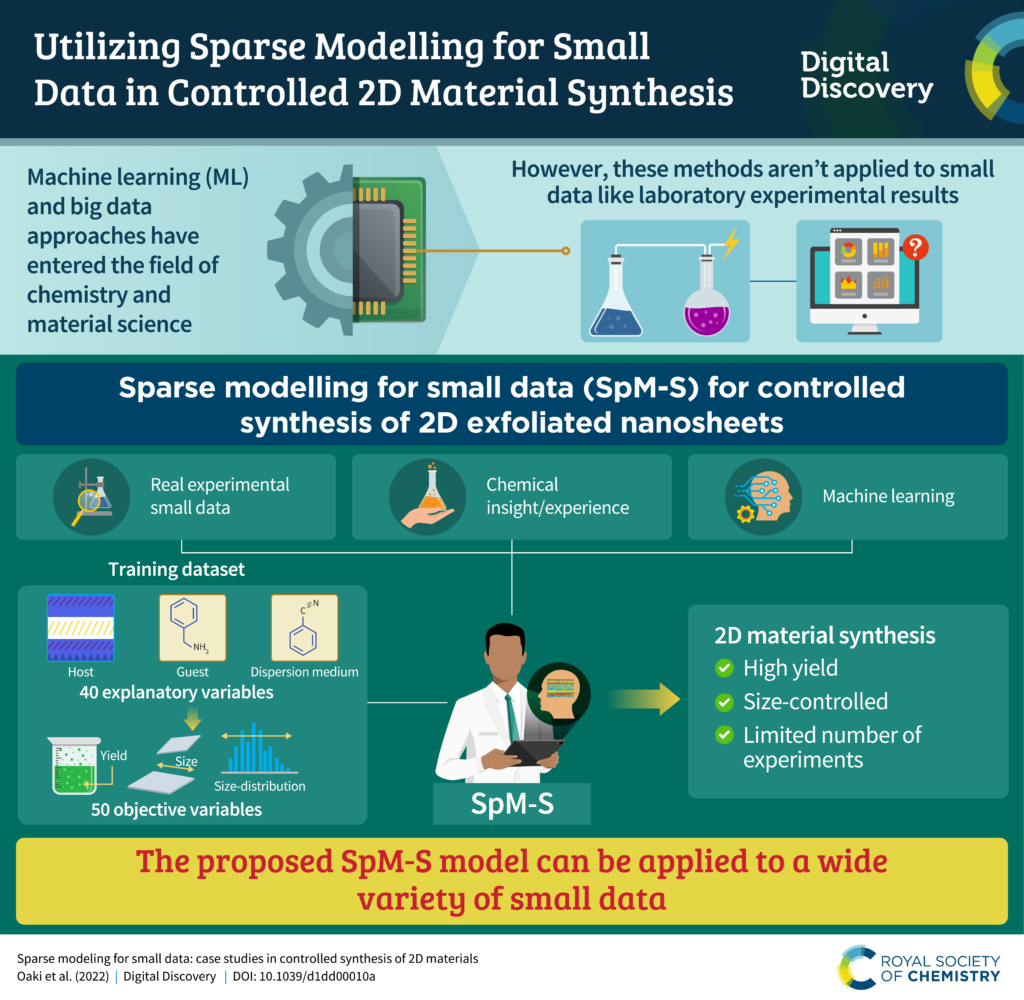
Find out more in the free-to-read open access article:
Sparse modeling for small data: case studies in controlled synthesis of 2D materials
Yuya Oaki et al., Digital Discovery, 2022, 1, 26–34. DOI:10.1039/D1DD00010A

Find out more in the free-to-read open access article:
Sparse modeling for small data: case studies in controlled synthesis of 2D materials
Yuya Oaki et al., Digital Discovery, 2022, 1, 26–34. DOI:10.1039/D1DD00010A

There’s still time to register for the Digital Discovery desktop seminar, taking place on the 29th of March 2022 at 1300 EDT! If you’re interested but can’t make the date, register your interest and we’ll send you a link to the recording afterwards.
| Professor Alán Aspuru-Guzik
University of Toronto, Canada Editor-in-Chief, Digital Discovery Title: “Computer Vision for Self-Driving Labs.” |
 |
| Andrea Angulo and Prof. Miguel A. Modestino
New York University, USA Title: “Leveraging Machine Learning Approaches to Optimize Organic Electrosynthesis.” |
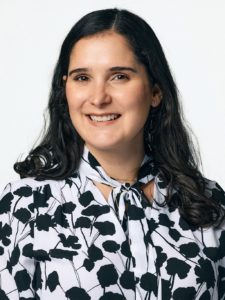  |
| Professor Lilo D. Pozzo
University of Washington, USA Editorial Board Member, Digital Discovery Title: “Materials Acceleration for All through Open Hardware.” |
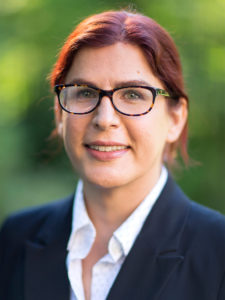 |
We’re excited to announce that Dr Matthew Addicoat of Nottingham Trent University has won the first exclusive Digital Discovery mug in our data reviewer prize draw!
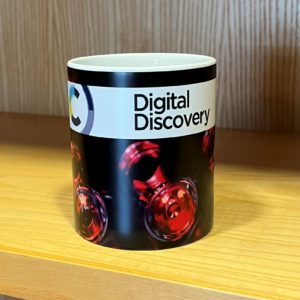
Dr Addicoat has this to say about open data: “Data is important for so many reasons: For me the most obvious reasons are that sharing data allows faster progression by reuse of data and broadening collaboration. It also allows for errors to be found and fixed, which is increasingly important as science increasingly turns to data-driven.”
Thanks to Dr Addicoat and all our other data reviewers for their support! Find out more about becoming a data reviewer in our earlier blog post.

We regret to announce that the desktop seminar scheduled for 24 March has been cancelled due to exceptional circumstances. We are sorry for the inconvenience. We hope to run a similar webinar in the near future. Note that the desktop seminar on 29 March will continue as planned.
We are pleased to announce two free desktop seminars to mark the publication of the first issue of Digital Discovery. In these 90-minute seminars, meet the authors and editors of Digital Discovery and learn about the exciting experimental and computational work being performed to accelerate scientific progress.
If you’re interested in either seminar but can’t make the date, register your interest and we’ll send you a link to the recording afterwards.
| Professor Yuya Oaki
Keio University, Japan Title: “Sparse modeling for small data (SpM-S) toward digital discovery in chemistry and materials science.” |
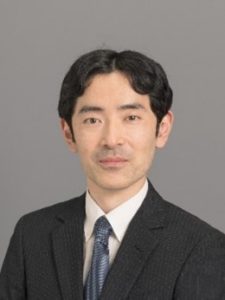 |
| Professor Ekaterina V. Skorb
ITMO University, Russia Editorial Board Member, Digital Discovery Title: “Digital Discovery at Infochemistry Scientific Center of ITMO University.” |
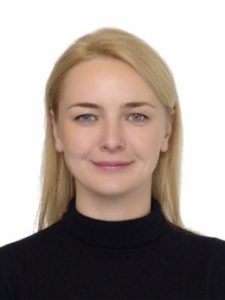 |
| Professor Evgeny A. Pidko
Delft University of Technology, The Netherlands Title: “High throughput computational screening and reaction network analysis for homogeneous catalysis with transition metal complexes.” |
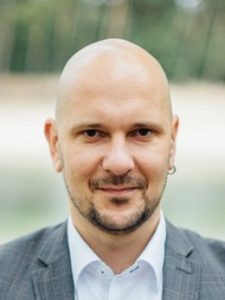 |
Further information
Register
| Professor Alán Aspuru-Guzik
University of Toronto, Canada Editor-in-Chief, Digital Discovery Title: “Computer Vision for Self-Driving Labs.” |
 |
| Andrea Angulo and Prof. Miguel A. Modestino
New York University, USA Title: “Leveraging Machine Learning Approaches to Optimize Organic Electrosynthesis.” |
  |
| Professor Lilo D. Pozzo
University of Washington, USA Editorial Board Member, Digital Discovery Title: “Materials Acceleration for All through Open Hardware.” |
 |

Digital Discovery are pleased to announce sponsorship of the best paper prize at the 1st Annual AAAI Workshop on AI to Accelerate Science and Engineering (AI2ASE), taking place as part of the 36th AAAI Conference on Artificial Intelligence. We are particularly pleased to be involved given this year’s theme, “AI for Chemistry”.
The annual AAAI workshop on AI to Accelerate Science and Engineering (AI2ASE) is relevant for dissemination of research at the intersection of AI/ML and Chemistry. Digital Discovery and AI2ASE are considering a special issue for selected papers in the chemistry domain; watch this space for more information.
You can find out more about the AI2ASE workshop at the event web site.
Welcome to Digital Discovery!
We are delighted to welcome Professor Ekaterina Skorb, ITMO University, Russia, as a new member of the Editorial Board of Digital Discovery.
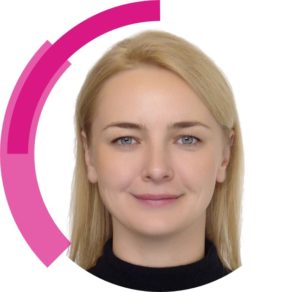
Ekaterina Skorb obtained her PhD in physical chemistry. She was a postdoc and Alexander-von-Humboldt fellow at the Max Planck Institute of Colloids and Interfaces (MPIKG, Germany) with Prof. Helmuth Möhwald. From 2013 she worked with Prof. Peter Fratzl (MPIKG) as a group leader. She was a visiting scholar at Harvard (USA) in Prof. George Whitesides’ group from 2016 to 2017. Since 2017 she has worked at ITMO University, Saint Petersberg, Russia where she is now a Full Professor and Director of the Infochemistry Scientific Center (ISC).
An interdisciplinary view on problems from various directions – chemistry, mathematics, IT, and biology – helps to solve complex issues and guide science development for the next generation. There are several ambitious projects running now at the ISC, such as synthetic cells, chemical computing, and chemical origins-of-life as well as sensor, lab-on-a-chip, and implant development.
Read some of Ekaterina’s recent papers below.
Topological Data Analysis of Nanoscale Roughness in Brass Samples
Mikhail Zhukov, Md Syam Hasan, Pavel Nesterov, Mirna Sabbouh, Olga Burdulenko, Ekaterina V. Skorb and Michael Nosonovsky
ACS Appl. Mater. Interfaces, 2021, DOI: 10.1021/acsami.1c20694
Spatiotemporal Regulation of Hydrogel Actuators by Autocatalytic Reaction Networks
Arpita Paikar, Alexander I. Novichkov, Anton I. Hanopolskyi, Viktoryia A. Smaliak, Xiaomeng Sui, Nir Kampf, Ekaterina V. Skorb and Sergey N. Semenov
Adv. Mater., 2021, DOI: 10.1002/adma.202106816
Infochemistry and the Future of Chemical Information Processing
Nikolay V. Ryzhkov, Konstantin G. Nikolaev, Artemii S. Ivanov and Ekaterina V. Skorb
Annu. Rev. Chem. Biomol. Eng., 2021, 12, 63–95
Photoelectrochemical photocurrent switching effect on a pristine anodized Ti/TiO2 system as a platform for chemical logic devices
Nikolay V. Ryzhkov, Veronika Yu. Yurova, Sviatlana A. Ulasevich and Ekaterina V. Skorb
RSC Adv., 2020, 10, 12355–12359
Please join us in welcoming Professor Skorb to Digital Discovery.

Postdoc or early career researcher? Interested in building your peer review experience and helping improve open data at Digital Discovery? Consider becoming a data reviewer. New data reviewers for Digital Discovery will be entered in our regular prize draw for an exclusive mug featuring the journal’s logo.
The Royal Society of Chemistry believes that, where possible, all data associated with the research in a manuscript should be Findable, Accessible, Interoperable, and Reusable (FAIR), enabling other researchers to replicate and build on that research.
As such, Digital Discovery expect that authors submit both their code and data to community-recognized data repositories or a general repository if no community resource is available, and submit a Data Availability Statement upon their article submission. Referees have to be able to access code and data during the peer-review process, and public release should be coordinated with the publication of the manuscript.
During the peer review of Digital Discovery manuscripts, the Associate Editor solicits the expertise of at least two reviewers to assess the article and submit a report. For all manuscripts which include original research, an additional data reviewer will also assess and comment on the data and code provided. By becoming a data reviewer, you will be included in our data reviewer pool as a possible assessor of data and the submitted Data Availability Statements.
Visit rsc.li/become-a-reviewer and follow the step-by-step instructions to sign up as reviewer.
Select Digital Discovery as the journal you would like to review for on the reviewer application form.
At the question:
Please let us know where you have found the reviewer application or recruitment information
Select “Other” and add:
Digital Discovery data reviewer
(If you are already a reviewer for the Royal Society of Chemistry, contact us and let us know you’d like to be highlighted as a data reviewer.)
Upon sending your submission, you will be entered into our next prize draw to win an exclusive Digital Discovery mug.
Find out more
Visit our Digital Discovery journal webpage
Learn about Digital Discovery’s data policies for submission
Find out more about being a reviewer for the Royal Society of Chemistry
We are delighted to welcome Professor Joshua Schrier, Fordham University, USA as a new member of the Editorial Board of Digital Discovery.
 |
“Chemistry has always been advanced by the dialog between data and theory. Machine learning, artificial intelligence, simulation, and laboratory automation are new languages for connecting experiment, theory, and computation.” |
Joshua Schrier is a physical chemist interested in computational methods to accelerate the discovery of new materials by using a combination of physics-based simulations, cheminformatics, machine learning, and automated experimentation. He is the Kim B. and Stephen E. Bepler Professor of Chemistry at Fordham University in New York City. Prior to joining Fordham in 2018, he was an associate professor at Haverford College, and a Luis W. Alvarez computational sciences postdoctoral fellow at Lawrence Berkeley National Laboratory. As a faculty member, he has received awards including the Dreyfus Teacher-Scholar, U.S. Department of Energy Visiting Faculty, and Fulbright scholar awards.
Read some of Joshua’s recent papers below.
Autonomous experimentation systems for materials development: A community perspective
Eric Stach, Brian DeCost, A. Gilad Kusne, Jason Hattrick-Simpers, Keith A. Brown, Kristofer G. Reyes, Joshua Schrier, Simon Billinge, Tonio Buonassisi, Ian Foster, Carla P. Gomes, John M. Gregoire, Apurva Mehta, Joseph Montoya, Elsa Olivetti, Chiwoo Park, Eli Rotenberg, Semion K. Saikin, Sylvia Smullin Valentin Stanev and Benji Maruyama
Matter, 2021, 4, 2702–2726
Predicting inorganic dimensionality in templated metal oxides
Qianxiang Ai, Davion Marquise Williams, Matthew Danielson, Liam G. Spooner, Joshua A. Engler, Zihui Ding, Matthias Zeller, Alexander J. Norquist, and Joshua Schrier
J. Chem. Phys., 2021,154, 184708
Using automated serendipity to discover how trace water promotes and inhibits lead halide perovskite crystal formation
Philip W. Nega, Zhi Li, Victor Ghosh, Janak Thapa, Shijing Sun, Noor Titan Putri Hartono, Mansoor Ani Najeeb Nellikkal, Alexander J. Norquist, Tonio Buonassisi, Emory M. Chan, and Joshua Schrier
Appl. Phys. Lett., 2021, 119, 041903
Robot-Accelerated Perovskite Investigation and Discovery
Zhi Li, Mansoor Ani Najeeb, Liana Alves, Alyssa Z. Sherman, Venkateswaran Shekar, Peter Cruz Parrilla, Ian M. Pendleton, Wesley Wang, Philip W. Nega, Matthias Zeller, Joshua Schrier, Alexander J. Norquist, and Emory M. Chan
Chem. Mater., 2020, 32, 5650–5663
Please join us in welcoming Professor Schrier to Digital Discovery.
We are delighted to welcome Dr Kedar Hippalgaonkar, Nanyang Technological University and A*STAR, Singapore as a new member of the Editorial Board of Digital Discovery.
 |
“Digital Research means the development of data-driven platforms, both theoretical and experimental, that can augment scientific pursuit and allow for open-ended materials discovery.
|
Assistant Professor Kedar Hippalgaonkar is a joint appointee with the Materials Science and Engineering Department at Nanyang Technological University (NTU) and a Senior Scientist at the Institute of Materials Research and Engineering (IMRE) at the Agency for Science Technology and Research (A*STAR) in Singapore. He is a 2020 NRF Fellow and MOE Inauguration Grant Awardee and has received the Materials Horizons (2021) and JMC A (2019) Emerging Investigatorships. He is leading the multi-PI Accelerated Materials Development for Manufacturing (AMDM) program focusing on the development of new materials, processes and optimization using Machine Learning, AI and high-throughput computations and experiments in electronic, thermoelectric, polymeric and structural materials. He led the Pharos Program on Hybrid (inorganic-organic) thermoelectrics for ambient applications from 2016-2020.
Dr Hippalgaonkar is using machine learning and data science for materials discovery. His approach to materials-by-design is built on creating and utilizing materials data by high-performance computing and high-throughput experiments to synthesize and characterize materials for optical and electronic properties. He is keen on developing tools such as process optimization, design of experiments and materials, and process fingerprinting from materials development to device applications. His research interests lie in designing functional materials, especially for energy applications. He has fundamental knowledge in solid state physics, 1D (nanowires) and 2D (TMDCs), as well as inorganic-organic (hybrid) materials. His background is in transport properties of materials, specifically in understanding their thermal, optical and thermoelectric properties.
Read some of Kedar’s recent papers below.
Multi‐Fidelity High‐Throughput Optimization of Electrical Conductivity in P3HT‐CNT Composites
Daniil Bash, Yongqiang Cai, Vijila Chellappan, Swee Liang Wong, Xu Yang, Pawan Kumar, Jin Da Tan, Anas Abutaha, Jayce JW Cheng, Yee‐Fun Lim, Siyu Isaac Parker Tian, Zekun Ren, Flore Mekki‐Berrada, Wai Kuan Wong, Jiaxun Xie, Jatin Kumar, Saif A Khan, Qianxiao Li, Tonio Buonassisi and Kedar Hippalgaonkar
Adv. Func. Materials, 2021, 31, 36, 2102606
Electronic transport descriptors for the rapid screening of thermoelectric materials
Tianqi Deng, Jose Recatala-Gomez, Masato Ohnishi, D. V. Maheswar Repaka, Pawan Kumar, Ady Suwardi, Anas Abutaha, Iris Nandhakumar, Kanishka Biswas, Michael B. Sullivan, Gang Wu, Shiomi, Shuo-Wang Yang and Kedar Hippalgaonkar
Mater. Horiz.., 2021, 8, 2463–2474
Two-step machine learning enables optimized nanoparticle synthesis
Flore Mekki-Berrada, Zekun Ren, Tan Huang, Wai Kuan Wong, Fang Zheng, Jiaxun Xie, Isaac Parker Siyu Tian, Senthilnath Jayavelu, Zackaria Mahfoud, Daniil Bash, Kedar Hippalgaonkar, Saif Khan, Tonio Buonassisi, Qianxiao Li and Xiaonan Wang
npj Comput. Mater., 2021, 7, 55
Inertial effective mass as an effective descriptor for thermoelectrics via data-driven evaluation
Ady Suwardi, Daniil Bash, Hong Kuan Ng, Jose Recatala Gomez, D. V. Maheswar Repaka, Pawan Kumara and Kedar Hippalgaonkar
J. Mater. Chem. A, 2019, 7, 23762–23769
Please join us in welcoming Dr Hippalgaonkar to Digital Discovery.
We are delighted to welcome Dr Linda Hung, Toyota Research Institute, USA, as a new member of the Editorial Board of Digital Discovery.
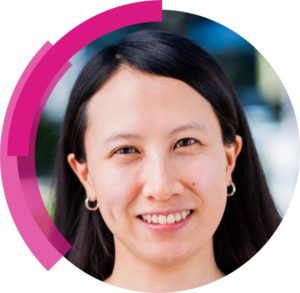 |
“By coupling machine learning and data science methods with experiment and simulation, we can accelerate the development of new, sustainable materials.” |
Linda Hung is a Senior Research Scientist in the Accelerated Materials Design and Discovery division at Toyota Research Institute (TRI). She obtained her PhD in applied and computational mathematics from Princeton University, and has held research positions at the Ecole Polytechnique (France), the University of Illinois Chicago, and the National Institute of Standards and Technology before joining TRI in 2017.
She has a background in density functional theory and other first-principles simulation methods, with applications in computational spectroscopy. Her current work explores how machine learning can accelerate materials simulation, and how to integrate data-driven methods into discovery workflows. Her research focuses on energy materials, and involves the development of software tools aiming to shorten the materials innovation timeline.
Read some of Linda’s recent papers below:
Random forest machine learning models for interpretable X-ray absorption near-edge structure spectrum-property relationships
Steven B. Torrisi, Matthew R. Carbone, Brian A. Rohr, Joseph H. Montoya, Yang Ha, Junko Yano, Santosh K. Suram and Linda Hung
npj Comput. Mater., 2020, 6, 109
BEEP: A Python library for Battery Evaluation and Early Prediction
Patrick Herring, Chirranjeevi Balaji Gopal, Muratahan Aykol, Joseph H. Montoya, Abraham Anapolsky, Peter M.Attia, William Gent, Jens S.Hummelshøj, Linda Hung, Ha-Kyung Kwon, Patrick Moore, Daniel Schweigert, Kristen A.Severson, Santosh Suram, Zi Yang, Richard D.Braatz and Brian D.Storey
SoftwareX, 2020, 11, 100506
Network analysis of synthesizable materials discovery
Muratahan Aykol, Vinay I. Hegde, Linda Hung, Santosh Suram, Patrick Herring, Chris Wolverton and Jens S. Hummelshøj
Nat. Commun., 2019, 10, 2018
Please join us in welcoming Dr Hung to Digital Discovery!